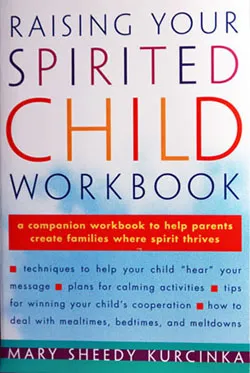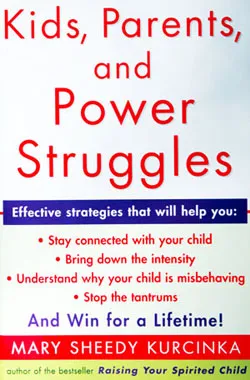When Others Judge Your Parenting

Developed by Mary Sheedy Kurcinka Ed.D. and Lynn Jessen M.A.
In the Spirited Child Facebook group, parents often ask, “How do you cope with the judgement from others?” One strategy is to remember you are not responsible for the feelings of other adults – that’s on them. Your responsibility is the well-being of your family. Another key strategy is to focus on what you have more control over, which is setting your child up for success in difficult situations. When you do, there will be fewer challenging behaviors for those critics to judge.
Whether you are planning a meal to be shared with others, a vacation, a special celebration, an overnight at the grandparents’ house, or an outing, think “Would I be willing to bet Dr. Mary and Lynn one hundred dollars my child will be successful?” If not, before you go, ask yourself one very important question.
“What can I do to set up my child up for success?”
Think about things you can control. When you go is often a choice. If it’s a public event, you could even choose to arrive early, giving your child time to acclimate before others arrive. If you are hosting, you select the time. You can also honestly assess whether you are willing and able to stay “duty ready” to catch the first cue your child is starting to dysregulate (like not listening, forgetting a rule, stumbling, or a change in voice tone) and take steps to re-center and calm them. Or to leave earlier than expected when you realize that despite your best efforts to calm them, they are simply done.
If a meal is planned in the middle of your toddler’s nap time, and you know there is no way they will survive the afternoon without their nap, you can choose to pass on the meal and plan to arrive later for dessert. If you are coparenting and the event is close to home, one parent could stay home while your toddler naps, and the other parent attends the meal. (An introverted parent may jump at the idea of arriving later.) Your choice will vary depending on your child and the situation. The key is to stop and ask yourself, “What can I do to help my child be successful?”
When you know your child cannot be successful in a situation: If despite planning and making changes, you realize that no matter what you do, your child is not going to be successful you still have choices. You could choose to attend anyway and deal with the fallout, realizing it’s not your child’s fault that they fell apart. The challenge was just too big for them. If you have someone in your network to care for your child, you could attend on your own. And then again you may decide that your family prefers to stay home.
Yes, others may be disgruntled that you have chosen not to bring the children, or to not attend at all. That’s when it is critical to remember you are not responsible for the feelings of other adults – that’s on them. Your responsibility is the well-being of your family.
When you consciously choose what’s right for YOUR family, you free yourself from the judgement of others.
Display All Posts
Search by Topic:
Popular Posts:
- When your child yells at you: Expecting and Coaching respectful behavior
- 5 Tips to Stop the 'Strike out Tantrums:' Hitting, Biting, Kicking and Name-calling
- Why is my child suddenly clingy?
- Ten Steps to a Peaceful Bedtime for Your Spirited Child
- When Your Child’s Meltdowns are Ruining Vacation






